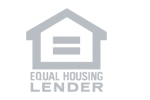Let’s talk loans, Mortgage loans
Taking on a mortgage might be the single most important financial decision a person makes, and accordingly, it may also be one of the most complicated. Simply understanding the type of mortgage loan that is right for your situation can be confusing at best.
In this article, we’ll wade through industry terminology to boil each option down to its essence, so you can better know which may be right for you and your home buying situation. We’ll also review some of the terms you might hear bandied about - Conforming, Conventional - to understand how they fit into the bigger picture.

Conforming
First, let’s talk about loans that are classified as ‘conforming.’ A conforming loan is one that meets certain standards set by the Federal Housing Finance Agencies, Fannie Mae and Freddie Mac. While banks and mortgage brokers may originate, close, and sell a conforming mortgage to a consumer, they do not always keep it on their books. Instead, Fannie Mae and Freddie Mac often buy the mortgages from the lender. This process allows the lender to free-up funds to make more loans to other consumers.
In order for a lender to sell a loan to Fannie Mae and Freddie Mac, it has to be conforming, meaning the bank cannot loan the consumer more than $453,100 (this conforming loan limit is periodically adjusted).
Borrowers who apply for conforming loans typically are offered better interest rates and lower fees.
Non-conforming
The most common type of non-conforming loan is a jumbo loan. This type of loan exceeds the threshold set by Fannie Mae and Freddie Mac and because of its size, can be a riskier proposition for the lender. On these loans, borrowers typically pay a higher interest rate, and the lender may ask for a larger down payment.
BBVA Compass offers both jumbo loans, and the Professional Mortgage Loan program, built especially for medical residents, practicing physicians, attorneys, oral surgeons, dentists or CPAs. The Professional Mortgage Loan offers loan amounts of up to $1,750,000 with low down-payment and no Private Mortgage Insurance (PMI) requirement.
Conventional
A conventional mortgage loan is one that is offered by banks or mortgage companies, and not backed by the government. Because they are taking on more risk when the loan is not backed, banks and mortgage companies will usually ask for some sort of down payment in a conventional mortgage, and typically, if the down payment is less than 20 percent, the borrower pays PMI.
The exception to this loan at BBVA Compass is the Home Ownership Made Easy (HOME) loan program, which offers up to 100 percent loan-to-value with no down payment or PMI required.(1)
Government Insured (Non-Conventional)
In this category of loans, there are several, including an FHA loan, a VA loan and a USDA loan. Each of these loans are government insured, meaning the lender of the loan - typically a qualified bank or mortgage broker - is protected from loss by the government if the borrower defaults.
A FHA loan has down payments as low as 3.5 percent. To obtain a FHA loan, borrowers must pay mortgage insurance premiums and annual premiums upfront. FHA loans also limit borrowers to a certain amount. This type of loan tends to appeal to borrowers with less money for a downpayment, or may be credit challenged. These loans are offered by qualified lenders around the country, including BBVA Compass.
A VA loan is guaranteed by the Department of Veterans Affairs. These loans have no down payment requirement, though there may be other fees included in the loan. Available to U.S. Armed Forces veterans, VA loans are provided by qualified lenders across the country, like BBVA Compass.
USDA loans are built specifically for rural housing. Similar to VA loans, they require no down payment, but may include certain other fees. Qualified lenders fund these loans.
Fixed Loans
A fixed rate mortgage has an interest rate that stays the same for the duration of the loan. With fixed rate loans, your mortgage payment amount won’t change for the term of the loan. Fixed rate loans come in a variety of options, with the most common being 15-year and 30-year. Fixed rate loans can be conventional, unconventional, conforming or non-conforming.
Adjustable Rate Mortgage (ARM)
An adjustable rate mortgage, or ARM, has an interest rate that changes at the end of the initial loan term. For instance with a 5 year ARM, the first five years of the loan will have a single interest rate. After the initial period, the interest rate changes to variable and adjusts each year thereafter. The variable rate is based on federally set interest rates, and as such may be significantly higher than the initial term of the loan. These loans are most beneficial for those borrowers who plan to sell their house within the term of the loan, or pay it off quickly. ARMs can be conventional, unconventional, conforming or non-conforming.
To read more about BBVA Compass’ mortgage offerings, click here.
To speak with a mortgage services agent from BBVA Compass, click here.
1 Requires a $500 contribution toward the transaction from the borrower’s own funds.
Terms and Conditions apply to all mortgage loan products. Approval required. NMLS ID 402936
